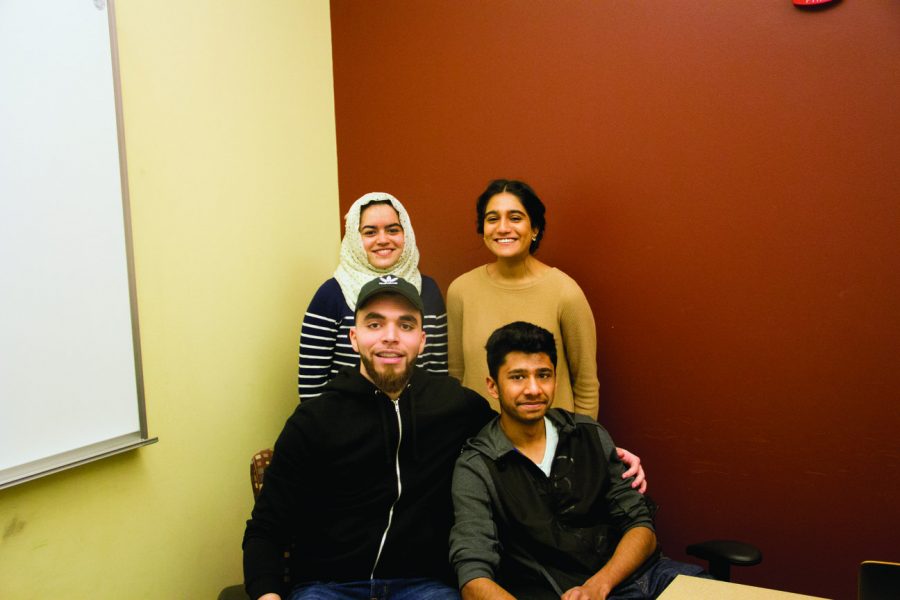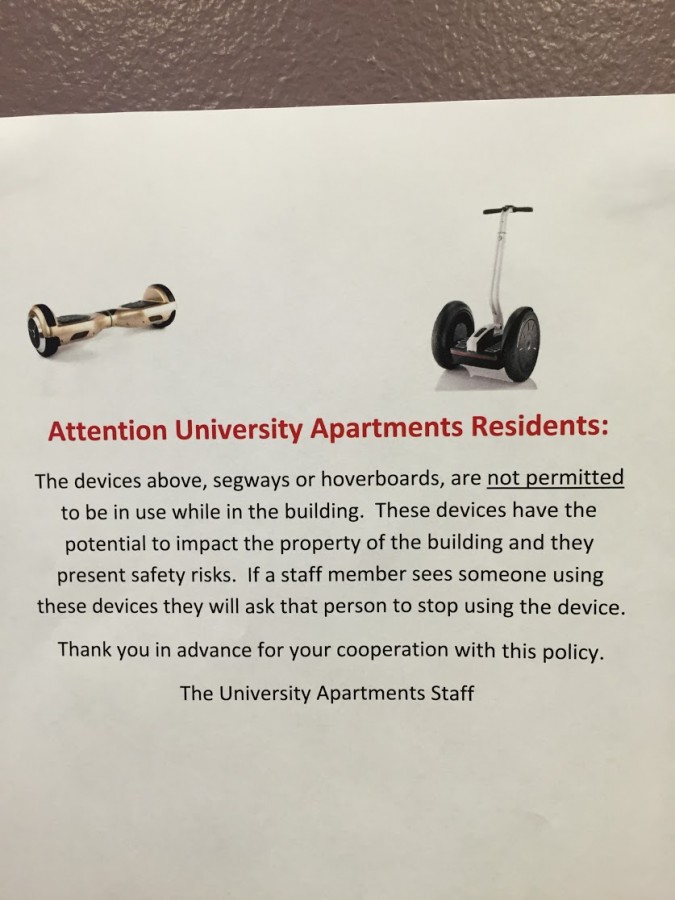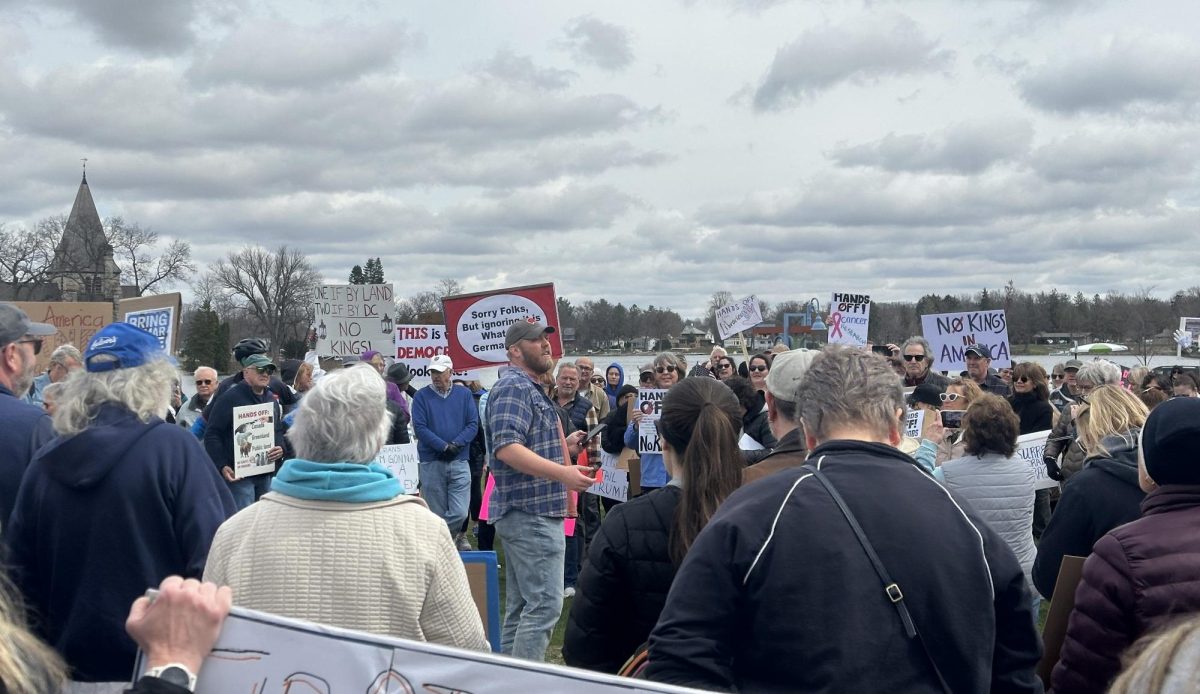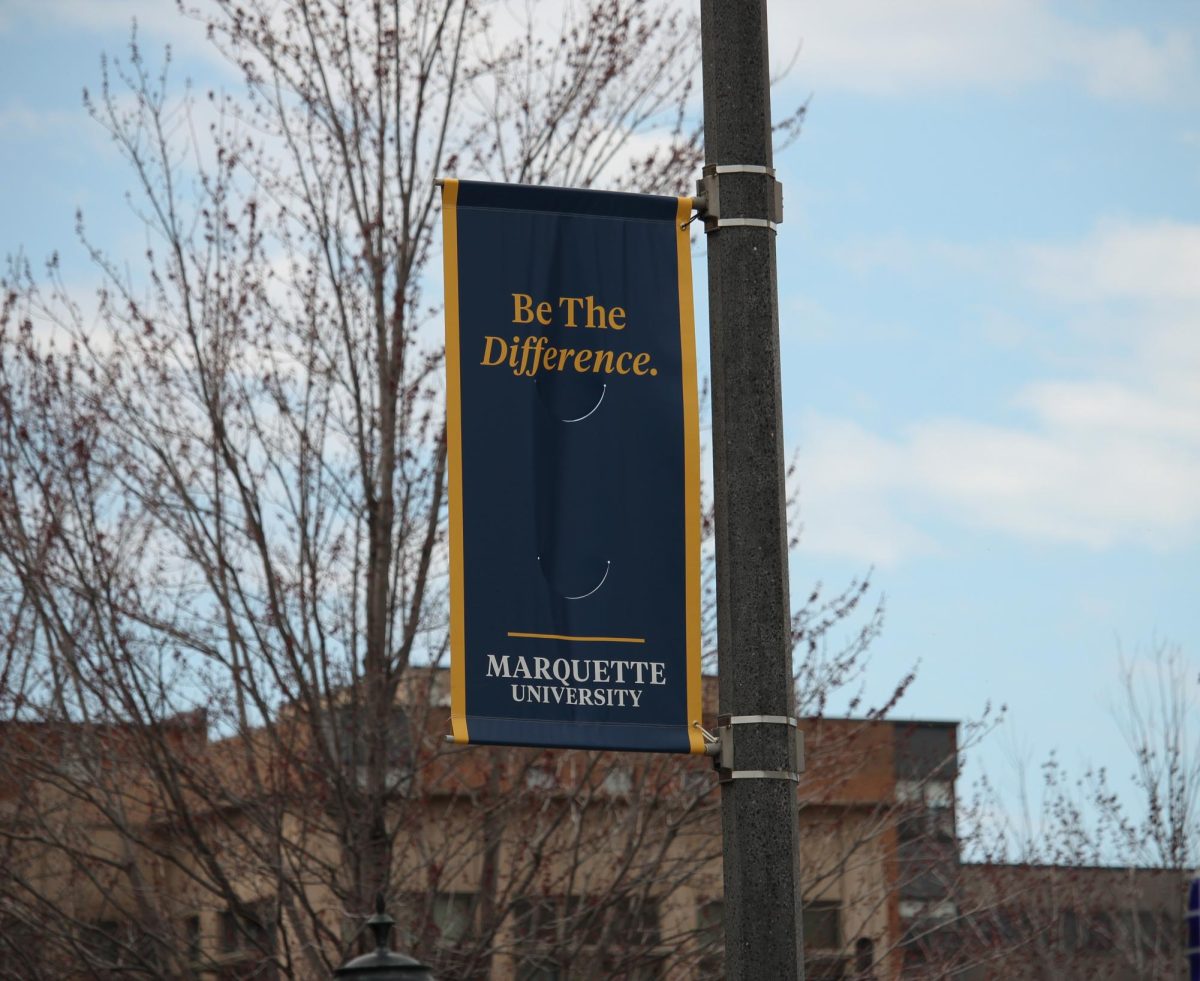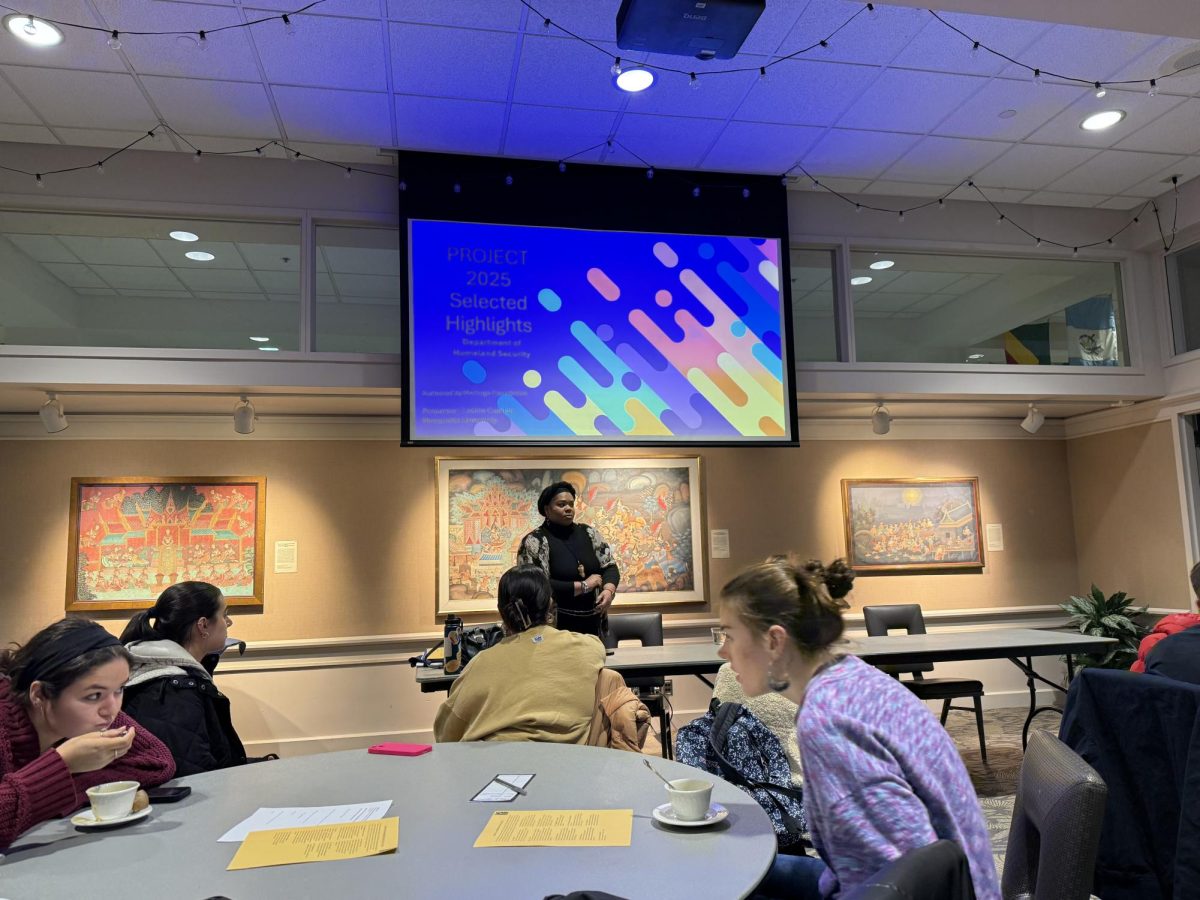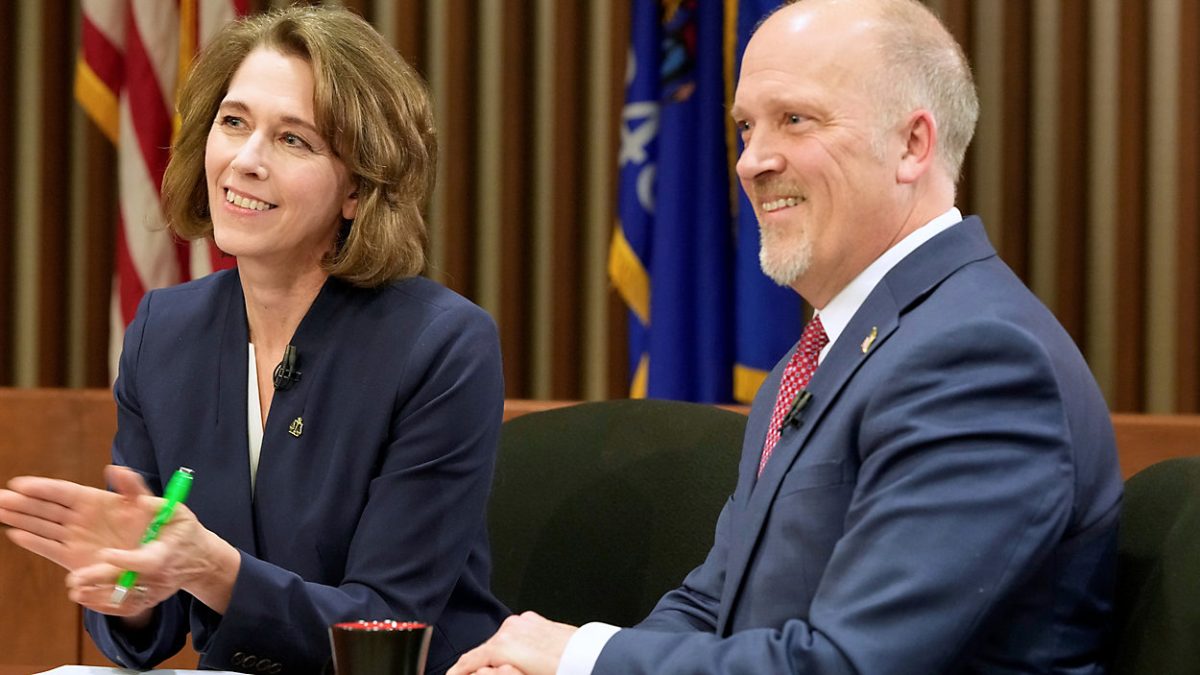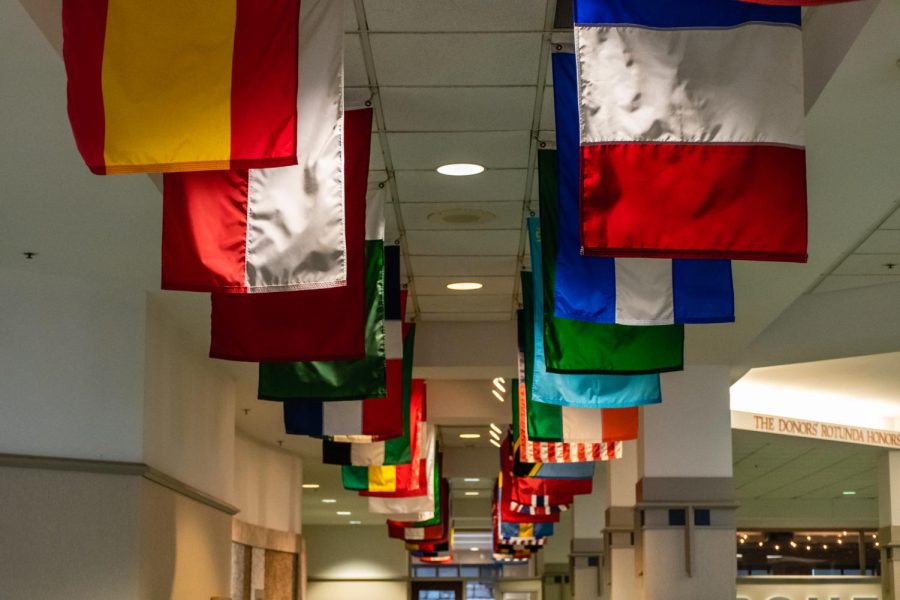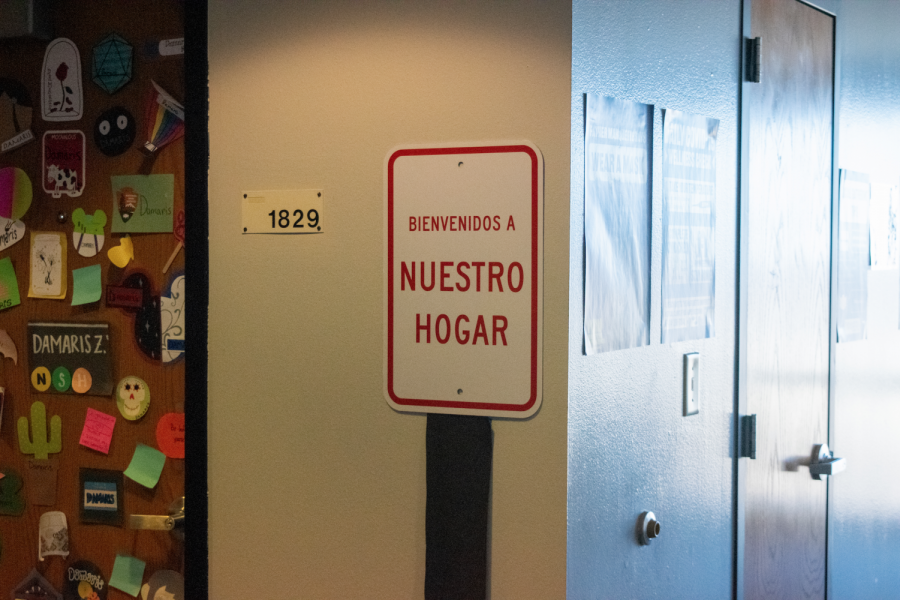His eyes brimming with tears, a Marquette graduate student from Iran broke down talking to his friend about his mother.
“I’ve never seen him cry before,” Sara Atshan said, tears in her eyes as well.
Atshan, an American-born Palestinian Muslim who is a sophomore in the College of Arts & Sciences, described the recent conversation with her friend as disheartening.
“His mom lives there (in Iran) and he comes here for school. He goes to see her all the time, and now he won’t be able to and she can’t come here.” The student wished to remain anonymous for fear of harassment.
America feels even further away from home than before for those in the Marquette community affected by President Donald Trump’s recent travel ban on seven majority-Muslim countries, even with the temporary halt of his executive order by a federal judge in Washington.
The conversation between Atshan and her friend followed the day Trump signed the executive order which put a temporary ban on any refugees entering the country, prohibited Syrian refugees indefinitely and banned citizens of seven majority-Muslim countries from entering the U.S. The executive order also affects permanent residents of the U.S. who are green card or visa holders who are traveling overseas for family, work or education.
“Marquette welcomes more than 600 international students and scholars from around the world, including those from countries that are impacted by the recent executive order,” Ellen Blauw, associate director of the Office of International Education said. “As a university and as the Office of International Education, we stand in support of these students and scholars, knowing that they are an integral part of the Marquette community.”
Marquette has 50 students from the Middle East region on student visas, according to the OIE. Many students, like Atshan, her friend and others of Middle Eastern descent have family living in the Middle East.
One of those students with family remaining in the Middle East until recently is Nader Shammout. He said his relatives from Syria are now refugees in Turkey, Sweden and several other countries.
Shammout, an American-born Syrian citizen with dual citizenship, is a sophomore in the College of Arts & Sciences.
“I used to go every year in the summer as a vacation. Syria was my home. It’s one of the most beautiful countries you will ever visit.”
Shammout used to tell his parents how much he wanted to move to Syria because all their family and many of his friends were there. “The best memories of my life were there,” he said.
“My family that are refugees cannot return, there is nothing there for them.”
Given the present situation in Syria, Shammout said he will not be returning anytime soon — there is no one left for him to visit.
“As of right now I cannot leave the country,” Shammout said. “I am too worried I will not be able to enter back in. It’s not worth leaving and not being able to come back, especially if you’re a college student.”
Blauw said in an email, “OIE hosted a meeting Feb. 1 with students and scholars from the region, to express our concern and to provide a space for dialogue and discussion about the changing situation.” At the meeting OIE advised students not to attempt to travel to the banned countries.
Shammout said he remains hopeful he will be able to return someday, and it is his goal to do so. The sophomore is a pre-med student and wants to dedicate his life to helping others.
“My dream would be to go to medical school and go to Syria and help the people there,” he said. “The doctors there are being targeted by the government and ISIS, and they are being killed for helping people.”
Shammout said America has always been the place many refugees know will offer them a chance. He said Americans need not be worried about Syrian terrorists.
“These people are being killed,” he said. “The last thing on their minds is to do the killing themselves.”
“It is saddening to my family. My dad was a refugee, he left his country to come to the U.S. and he built a life for himself out of nothing. And this is what the U.S. is about, it is about the American dream. If you come here with nothing and work hard enough, you can build something for yourself.”
Milad Hosseini, a freshman in the College of Arts & Sciences and U.S.-born citizen, offered a similar story to Shammout’s.
“My dad came here during the 1979 Iranian revolution with $100 in his pocket. He was a young kid with big aspirations looking to live the American dream.”
Hosseini has traveled to Iran before, and wants to do so again in the future, but knows now is not the time. He has two grandparents still living in Iran.
James L. Robart, federal judge for the U.S. District Court for the Western District of Washington, announced his decision Feb. 3 to temporarily halt enforcement of Trump’s executive order. But Hosseini said until the situation with the executive order is cleared up, he won’t be traveling back to his ancestral home.
“The ban hurts my parents because they were immigrants at one point and know the struggle,” he said.
Aamna Javed, a sophomore in the College of Arts & Sciences, echoed that fear of not being able to travel despite being a U.S. citizen. She was born in Pakistan, immigrated to the U.S. when she was 1 year old and currently holds dual citizenship.
Javed said she still has plenty of family living there, and her family have been concerned recently about their ability to travel. “My brother’s wedding is in April, and we’re really hoping they can come out, but with things going on, we don’t really know if that will work out,” she said.
Javed expressed her anger with the recent executive order.
“The ban really made me mad,” she said. “People just want to come here and survive. People just want to live.”
Like many of her fellow Muslim students, Javed said she was happy to see the U.S.’s reaction. “It means a lot that people care, and people are going out and protesting … It’s a great feeling knowing the country has come together to back us.”
“I like the quote, ‘They tried to bury us but they didn’t know we were seeds,’ and that is exactly what is happening now,” Javed said. “Trump is trying to get rid of us, but we’re not going to let it happen.”
Not only does the executive order affect non-citizen members of the Marquette community, it will affect academic travels for faculty who do research overseas and for students who might want to study abroad.
“I am an American citizen and will be traveling for conferences and study abroad these upcoming spring and summer months,” an anonymous Marquette faculty member said. “Even though the ban does not include me, I still will feel uncomfortable traveling through U.S. airports (to and from the Middle East).”
The faculty member said she did feel some relief when she heard the news of the federal judge halting the executive order. “This is a test of our check and balance system,” she said.

